Weekly Tech Recap - № 246 - Apple Watch, BlackBerry, GeForce Now, Google Maps Hack, MWC 2020
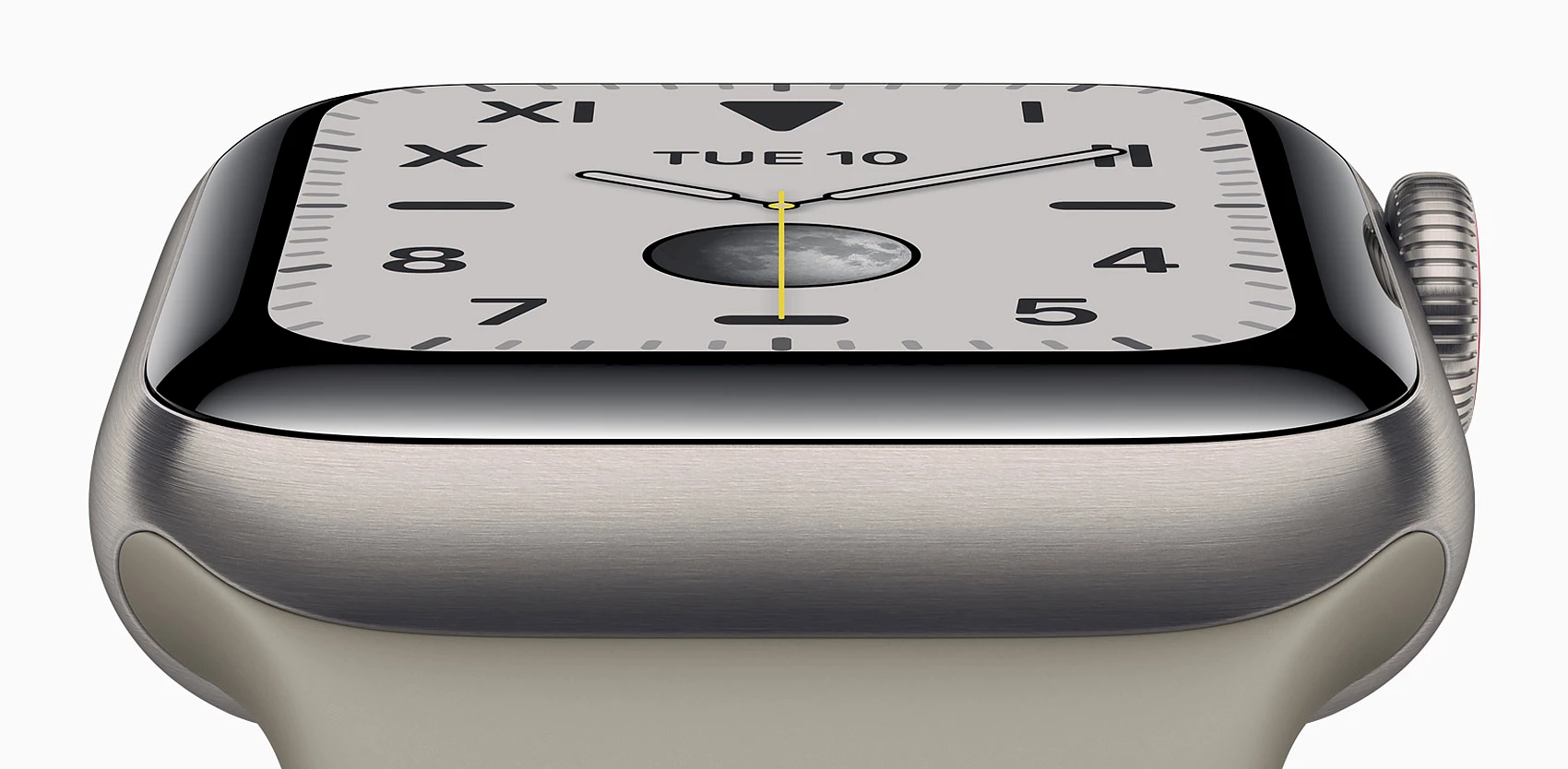
Apple Watch takes a bite out of the Swiss watch industry
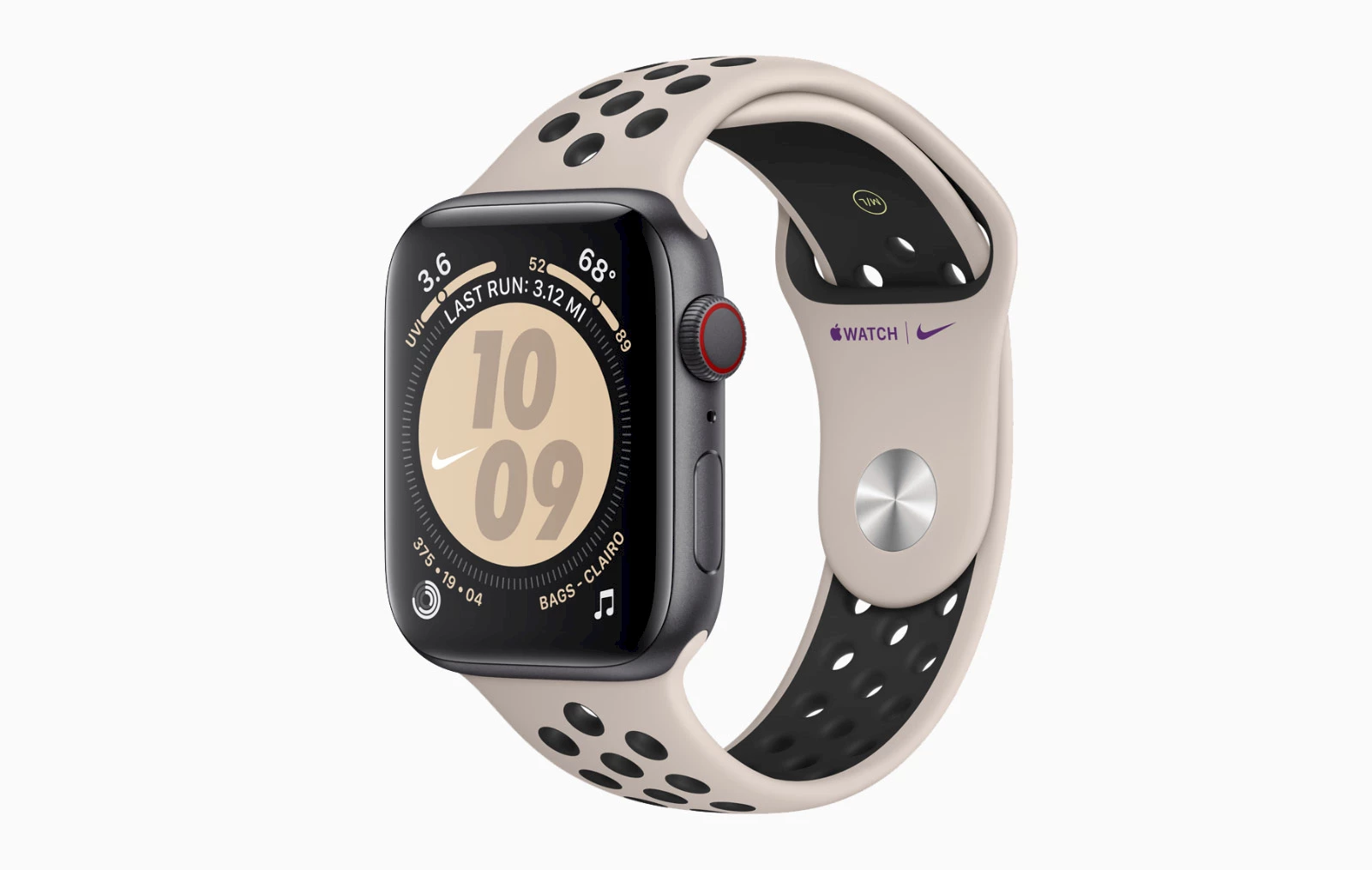
Apple Watch Nike Series 5. © Apple.
Apple Watch is not only the best-selling smartwatch in the world, but also the best-selling watch, period. Accoding to Strategy Analytics, Apple sold almost 31 million units in 2019, an increase of 36% over 2018, while the entire Swiss watch industry, which includes timeless brands like Rolex, Swatch, Breitling, Breguet, Jaeger-LeCoultre, Omega, TAG Heuer, Zenith, Blancpain, Patek Philippe, etc., sold just 21.1 million units, 13% less than in 2018. And the trend is not about to change, since younger consumers have no time for analog timepieces, while the Swiss industry has no chance of competing with Apple on the smartwatch front. The situation reminds us of the camera industry, which was devastated by the rise of smartphones. The Camera and Imaging Products Association (CIPA, a Japanese association of camera builders) says that 2019 was a bad year for camera and lens sales, and that 2020 will be even worse. Total sales of digital cameras declined by 21.7% in 2019, to 15 million units; projections for 2020 predict 11.7 million units sold, another drop of 23.3%.
⇨ Strategy Analytics, “Apple Watch outsells the entire Swiss Watch industry in 2019.”
⇨ Inside Imaging, “CIPA: The incredible shrinking camera market gets smaller!.”
Bye-bye BlackBerry?
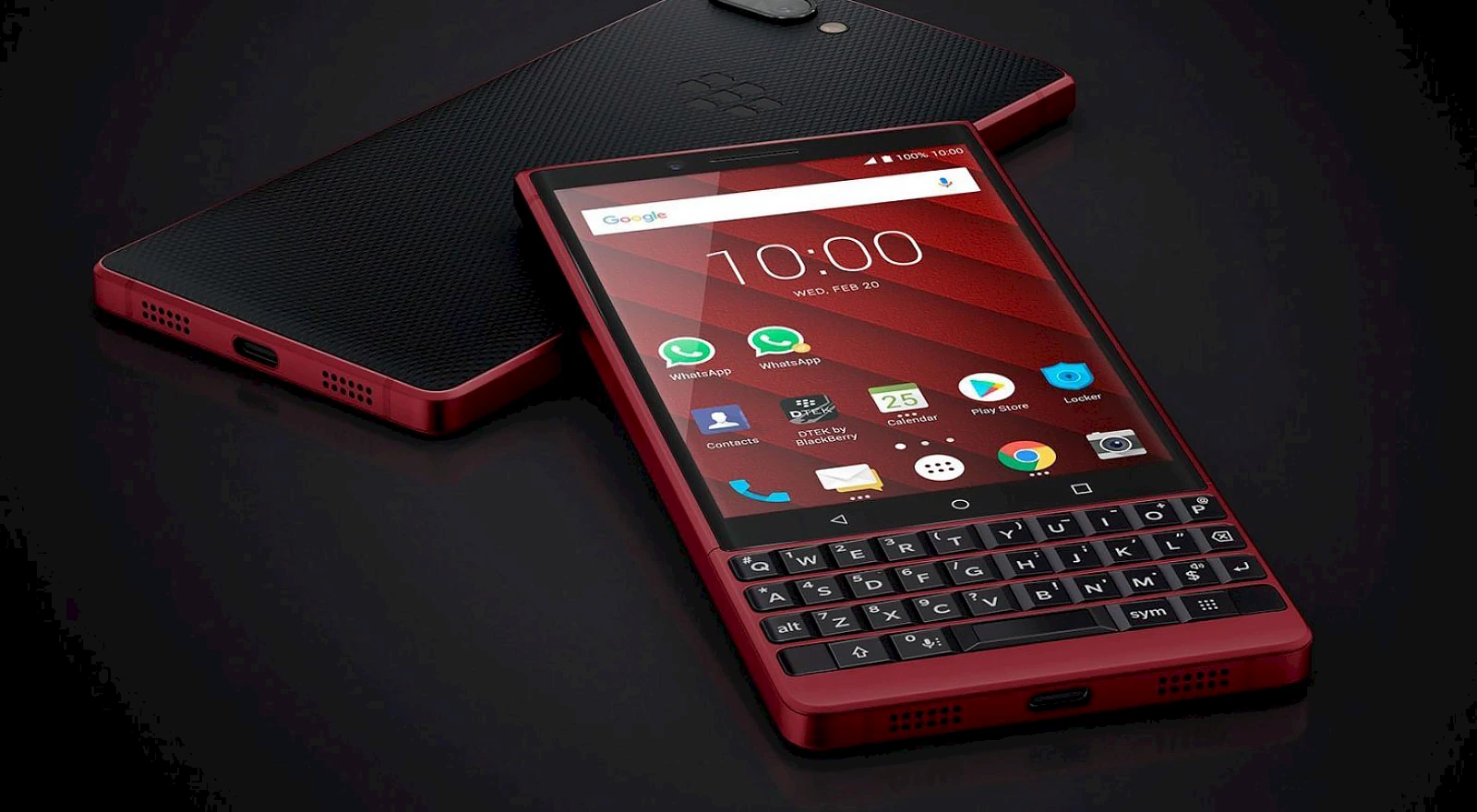
Key2. © TCL Communication.
Chinese phone-maker TCL tweeted on Monday that it would stop selling BlackBerry phones as of August 31. TCL has been making BlackBerry-branded Android phones with physical keyboards since December 2016, but will not be renewing its brand license — due to a trade dispute? — as it increasingly concentrates on producing phones under its own brand. Which once again raises the question of whether any telephones will bear the BlackBerry logo in the future. TCL says it will maintain support for existing devices until August 31, 2022. This is devastating news for the physical keyboard addicts.
Under the BlackBerry label, TCL had developed some interesting devices, the KEYone and the KEY2. But, while they were pretty cool, they mostly catered to the nostalgia niche. BlackBerry is a textbook case of an innovative company that led the industry, then coasted its way into oblivion. Indeed, the leaders at Research in Motion underestimated the technological and cultural revolution brought about by the iPhone in 2007. Canadian company BlackBerry Limited, formerly Research in Motion, is now entirely out of the hardware field, specializing in security software solutions for enterprises.
⇨ Ars Technica, Ron Amadeo, “The end of BlackBerry phones: TCL will cease sales in August 2020.”
Now: free beta version of GeForce Now
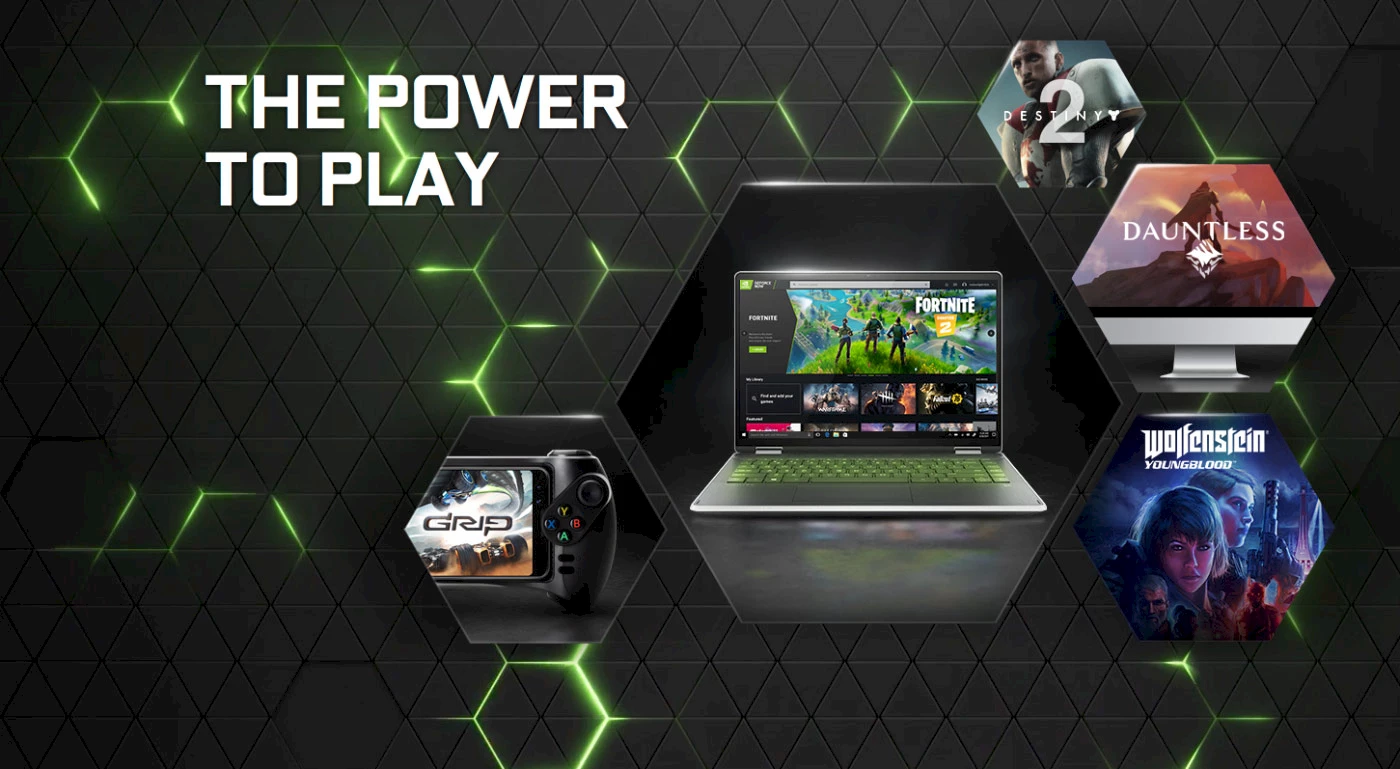
GeForce Now. © Nvidia Corp.
GeForce Now, the cloud-based gaming service for Windows, macOS and Android, is now open to all after a months-long closed beta. Unlike Google Stadia, this service is based on the BYOGame concept: you can use it to play any game you’ve bought off of various platforms like Steam or Epic Games Store. What you’re effectively doing is leasing access to a remote Windows environment with all the power of GeForce GTX. Now, you can play paying or free games, restricted only by compatibility, just as you would locally. GeForce Now will be especially popular among macOS users, whose gaming options are severely restricted compared to Windows (especially since the axing of 32-bit support by macOS Catalina, which effectively kills off many classic games). While GeForce Now is open to all, it’s still a beta version with its usual irritants. For example, on the Mac, the copy-and-paste function doesn’t work between macOS and the remote PC, which is a pain if your Steam password is long and complex; another example, the number pad of extended keyboards is not recognized. That said, image quality (1080p/60 fps stream) and latency are truly astonishing, and the remote PC can support maximum graphics settings. You can try out GeForce Now in the free tier, but you’ll be limited to an hour’s play, and during peak times, you’ll have to wait in line behind paying customers. Or, you can pay CAD6.50 per month for priority access, longer playing sessions (several hours, says Nvidia, without elaborating), and real-time ray-tracing (RTX technology, but only three games supported as yet: Metro Exodus, Deliver Us The Moon, and Wolfenstein Youngblood). The list of compatible platforms has two conspicuous omissions: iOS and Linux.
⇨ Ars Technica, Sam Machkovech, “RIP Stadia? Nvidia’s newly launched cloud-gaming service is (mostly) a stunner.”
Manufacturing gridlock
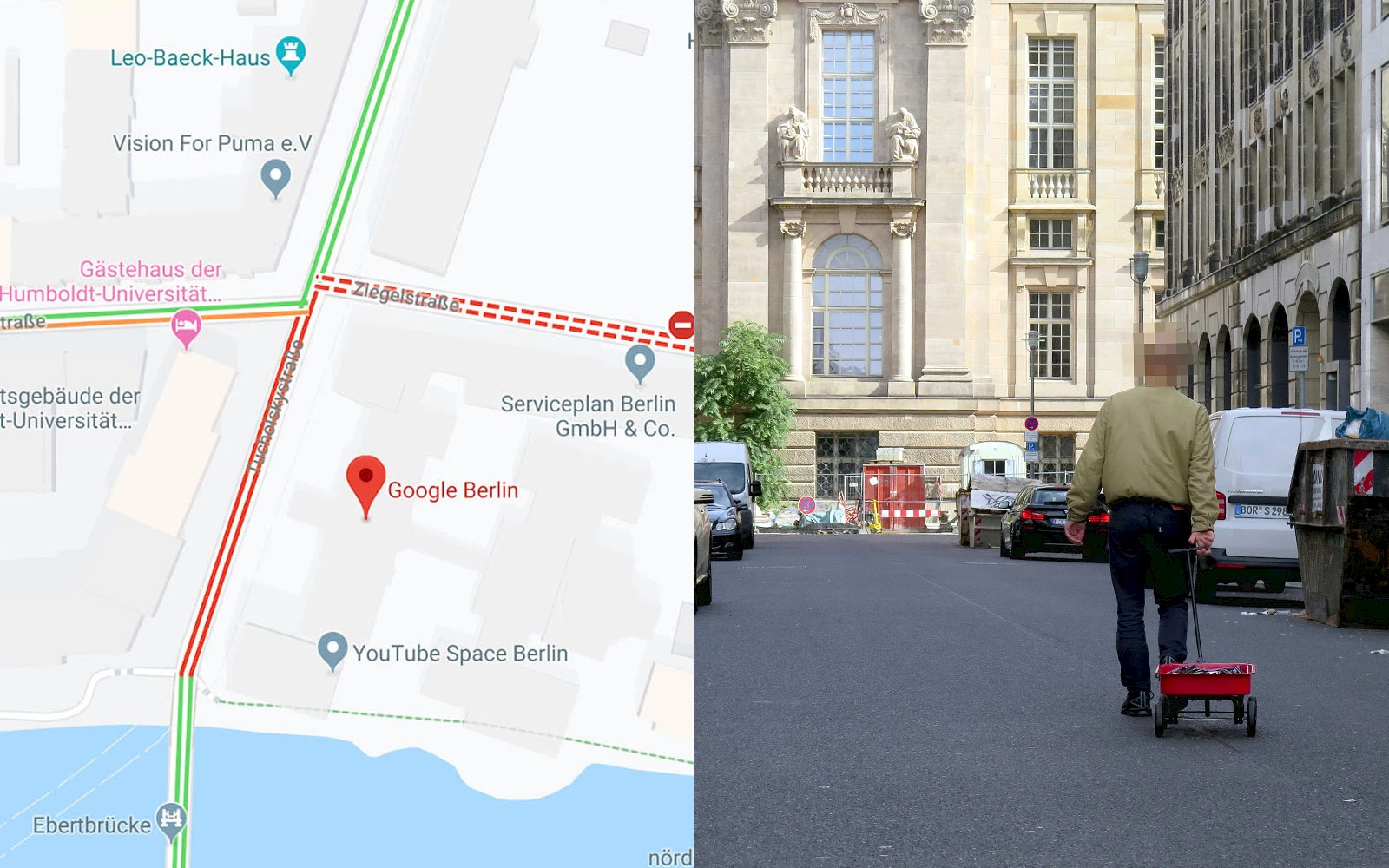
Google Maps Hack. © Simon Weckert.
Google Maps determines congestion by gathering the location and motion speed of phones in a given area. Generally speaking, those phones are going to be in the road because they’re with drivers, inside vehicles, and so measuring the phones’ speed is a reasonably decent proxy for measuring vehicle speed. Those data points, aggregated, make a road look green on the map if traffic seems to be moving smoothly, or they look red on the map if traffic appears to be severe. Google uses the same technique to estimate peak periods in stores or at the restaurant: it all comes from data sent to Google by Google-compatible smartphones. German artist Simon Weckert decided to hijack technology to show virtual traffic jams on Google Maps in real-time, walking a little red wagon piled with 99 phones on Berlin’s deserted streets. Presumably, this will impel Google engineers to tweak their algorithms in order to make them artist-proof.
⇨ YouTube, “Google Maps Hacks by Simon Weckert.”
⇨ Ars Technica, Kate Cox, “How to virtually block a road: Take a walk with 99 phones.”
MWC vs. 2019-nCoV
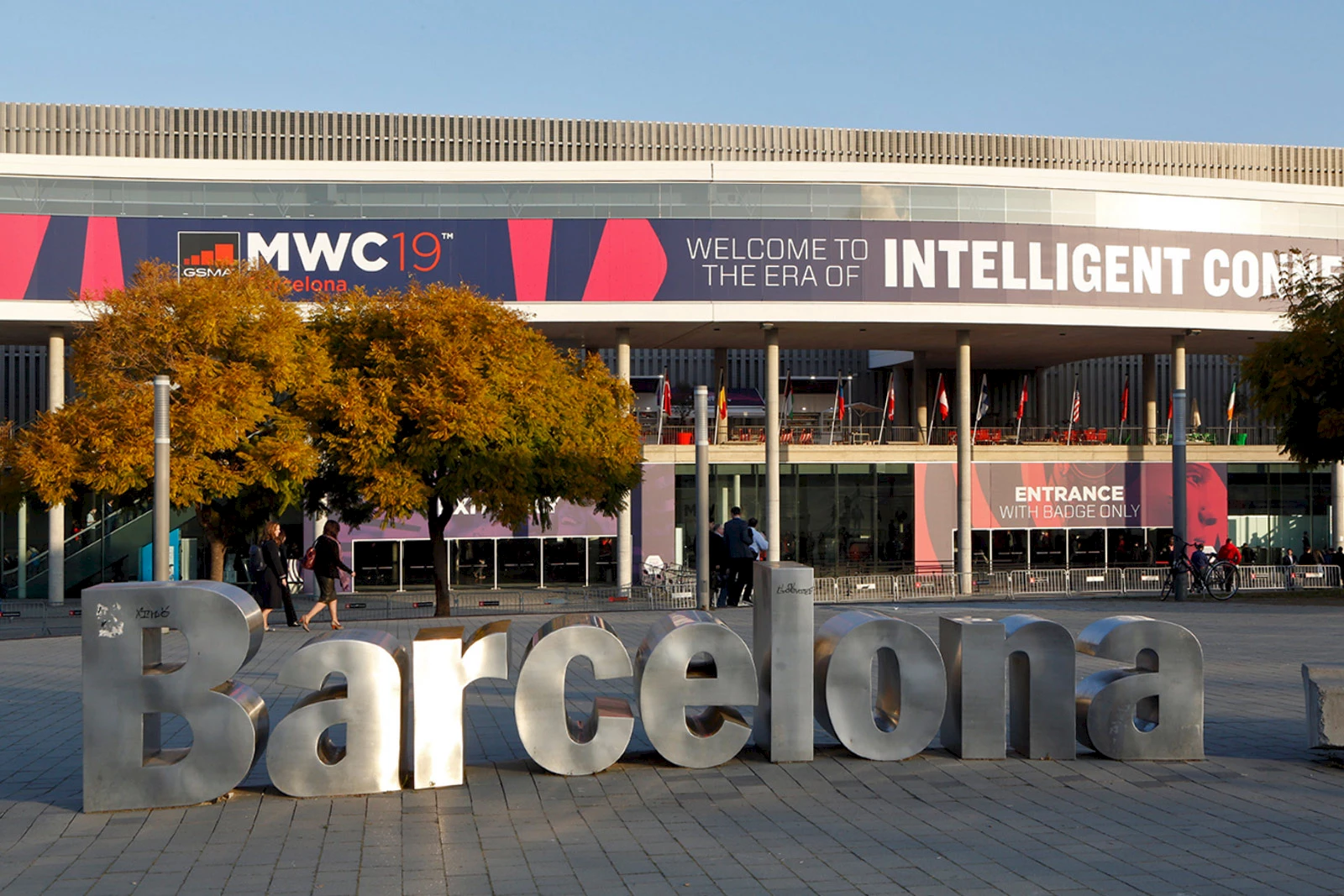
MWC 2019. © GSM Association.
The Mobile World Congress, to be held in Barcelona from February 24 to 27, is the world’s largest mobile technology event. Just about every major builder attends, organizing press conferences to unveil new products. However, some of them are rethinking their attendance due to the new coronavirus (2019-nCoV) epidemic. On Tuesday, Korean chaebol LG announced it would not attend this year’s congress. ZTE, the Shenzhen-based international conglomerate, has also downsized its presence, cancelling its press conference, though it still plans to have a stand. Huawei, for its part, has no plans to scale back, and is thinking of ways to mitigate risks. For example, they could send Europe-based staff (Huawei employs some 12,000 people in Europe), or send China-based staff to Spain ahead of time and voluntarily quarantine them. Quite apart from the Mobile World Congress, the 2019-nCoV threatens to disrupt the entire telephone manufacturing chain, whose essential links, including Foxconn, are in China.
⇨ The Register, Matthew Hughes, “Should I stay or should I go now? Mobile industry braces for an MWC overshadowed by Wuhan coronavirus misery.”
